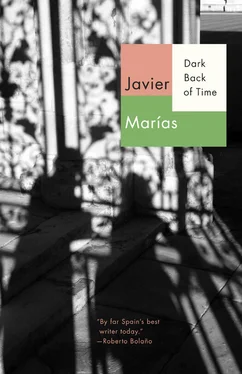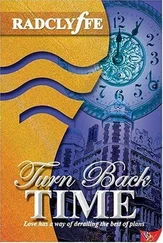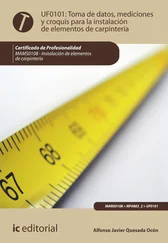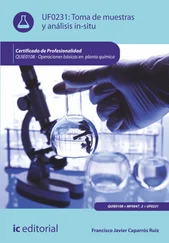
So only the scenery was real, and not even that: it was a skewed Oxford, a replica seen from my imaginary or false perspective, the fabulizing viewpoint of someone who spends a single night in a legendary hotel that will not record his insignificant, pretentious presence alongside that of the famous people who once slept or lived there, or perhaps killed themselves or were killed, lending the establishment that distinction: the room is closed off, and now tourists will only look in. Just incidental things, I said, when it is so difficult to know what will turn out to be incidental or fundamental once our book or story or life is over and has become known or past time which cannot be reproduced. Or maybe the book can, each time it’s read, but no, each reading changes it, though none of them rewrites it.
Real, too, was the aspect of the novel that struck many readers as the most novelistic and fictitious, pure Kiplingesque invention, pure make-believe on my part: the story, told tentatively then, of the ill-fated, calamitous and jovial writer John Gawsworth, the incredible king of Redonda who never saw his kingdom but sold it several times and had himself called Juan I, and whose real name was Terence Ian Fytton Armstrong, two photographs of whom I printed and described in that book and print here once again to jog the memories of those who have read that novel and introduce them to those who haven’t and so will need to familiarize themselves with his face and his various names if they are going to stay in touch with these pages and go on turning them. For of that man I shall have to speak, and quite a lot, since I now, in a manner of speaking, have him in my home. Or rather, though he’s dead — and the second photo isn’t of him, exactly, but of the death mask that Hugh Oloff de Wet made immediately in incongruous homage to one who left the world a beggar — he lives on in me a little, if that can be said of someone who died twenty-six years ago without ever having had the faintest notion of my existence.


I have before my eyes a copy of his death certificate, dated 1970, and of his third and final wedding license, dated fifteen years earlier; he married a widow five years older — he was forty-three and she forty-eight at their wedding — and both copies were placed in my hands by the granddaughter of that woman who was widowed and married and widowed again, a blonde Englishwoman named Maria, without the accent, of course, but the same name as my Andalucian grandmother whom I never knew, María Aguilera, who must have laughed when she found herself married to a blithe and reckless widower whose last name was Marías and she became virtually a declension: María de Marías. The first certificate says that Armstrong — in death he was no longer Gawsworth, or not to the doctors, and perhaps by then he hadn’t been Gawsworth for some time — died in Brompton Hospital in London’s Chelsea district and gives the medical causes for his decease. In the box marked “Profession,” a civil servant named Vinten or an informant named Lewis wrote, “A poet,” and on the next line, under the heading “Qualification,” they added that the body had to be buried, “in consequence,” and so it must have been. Nevertheless, my house in Madrid is the place where the strange, unhappy spirit of the poet king of Redonda still draws breath and holds out against disappearance or stillness and refuses to declare the party over, and it is also the place where his handwriting lives on, which is to say, his voice that speaks. Or that will speak later, because it isn’t yet the moment for you to hear it, though that time will come as I go along writing these lines and turning these pages myself.
But none of the real human beings I have mentioned were among those who first became aware of my novel because none of them knew Spanish or my name or that I was a writer, and they may not have been people who read much, with the exception of the bibliophile and bibliomaniac Gawsworth or Armstrong, but he had died on September 23, 1970—I had just turned nineteen three days earlier — and could never have foreseen me. And though De Wet did know Spanish, who knows what became of him, his life span is not known to us, his traces have been lost.
As I explained in a 1989 article titled “Who’s Writing,” the nameless narrator of All Souls —who, if memory serves, is called only “our dear Spaniard” or “the Spanish gentleman” by the other characters — on returning to Madrid after his two years of false exile or privileged emigration in Oxford, appears in the novel married to a woman named Luisa and father of her newborn child, which was demonstrably not my situation, my case or anything that has ever happened to me. There has never even been a significant or lasting Luisa in my life. That alone ruled out any absolute identification of narrator with author, and, by extension, of any other character with any real person I might have known or come into contact with during my stay. Still, the rest of what the narrator related could have happened to me or been witnessed by me. I could state and declare, as I’ve often done and am now doing again, that almost all of it was invented except for the setting and some minor personal experiences that are transformed in the book, that none of the characters had a counterpart in anyone who exists or once existed, and, more specifically, that none of them was the portrait or caricature of any of my British colleagues on the Faculty of Medieval and Modern Languages, of which the Sub-Faculty of Spanish, to which I was attached, was part. Though in fact there’s no reason to believe anything I state or declare, even if there does exist a credulous and unjustifiable tendency to believe the statements authors make in regard to their books. (I realize, even as I point this out, that I’m involuntarily putting into question the veracity of whatever I say here, and will go on saying, but I’ll have to run that risk and appeal to that credulity in spite of everything: attention will be paid or will not be, I’ll be heard out or I won’t, and there is no reason to do so: there are no two ways about it, that’s all.) What I cannot and will never be able to do is demonstrate that the events of the novel did not happen to me in my life, since it is always impossible to demonstrate that you have not done something or committed some crime if the opposite is presumed, from the start, to be the case, a thing all dictators know very well. To go no farther than Spain itself, that was the judicial policy of the Franco regime, as soon as the war was over and for the long term. A neighbor, an enemy, a rival, an envious colleague, a friend would accuse someone of various crimes, the direr the better, and on the strength of that alone the person would be arrested and tried, or, rather, made the center of a show trial, and his accusers would tell him, “Go ahead and prove you didn’t kill, or inform, or loot, or rape,” knowing full well that it is almost impossible to prove anything in the negative. And that is what happened to María Aguilera de Marías’s youngest son, my father, of whom it was alleged, among other imaginative things, that during the war he had been a “contributor to the Moscow newspaper Pravda ,” and — to my undying envy—“a voluntary companion to the bandit Dean of Canterbury.” I must confess that I would pay a handsome bribe or incur almost any shady obligation in order to see myself brought up, just once in my life, on charges so outlandish and archaic. I haven’t yet managed to find out much about the wartime role of this “bandit” who was known as “the Red Dean” or “ el Deán Rojo ,” and whose real name was the Reverend Dr. Hewlett Johnson, as if he were an Oxonian, and in fact he received his doctorate in theology at Oxford in 1904, at Wadham College, which is not entirely unknown to me. Of the little that I know about the Dean, the most striking facts are that he was the first to break through the naval blockade of Bilbao in 1937 and that he was seventy-two years old when the conflict broke out and seventy-five when it ended, a commendable age indeed at which to engage in banditry in a foreign country and risk his neck setting sail from Bermeo in a French torpedo boat, dodging mines and Franco’s warships to reach San Juan de Luz without mishap, in addition to whatever other feats or felonies he carried out with his voluntary companion, whoever that was, and of course it was not my father, nor, by any means, the Archbishop of Canterbury, who saw no alternative but to issue a statement in 1947 to let it be known that his Dean was speaking and acting only for himself, far beyond the cathedral’s limits, and that the Archbishop had no responsibility for what he might say or do, “nor the power to control it.” The Red Dean of Canterbury, an indomitable, impervious Russophile and apologist for the Spanish Republic, must have emerged unscathed from his escapades in and around the Iberian peninsula since he lived to be ninety-two, almost as long as my peaceable porter Will, also a combatant albeit in a different war. But because of the Red Dean and his involuntary companionship, I narrowly risked not being born, given that in 1939 the firing squad was the most common and frequent fate of those denounced by cunning and patriotic friends, and if my father went only to jail and no farther it was due to luck and my mother’s tenacity — they didn’t know then that they would marry each other — rather than to any lack of ill will on the part of the two men who informed against him. And if I hadn’t been born, so what? Too many people are born and it’s as if it never happened and they never existed; there are so few whose memory is preserved, and so many who die quickly as if the world didn’t have the patience to witness their lives and was hurrying to be rid of them, the effort made in vain and the diminutive footsteps that leave no trace, or only in the sharp-edged memory of the one who taught those feet to take steps and made the mistake and the effort, a costly and superfluous luxury that is expelled from the earth at once like a breath, without even a chance to be put to the test. And so what, if no one were born, ever.
Читать дальше















